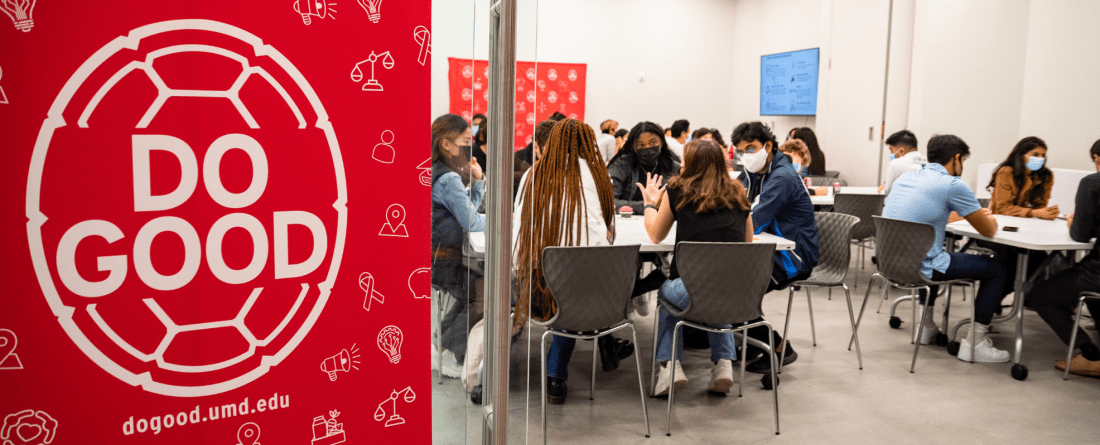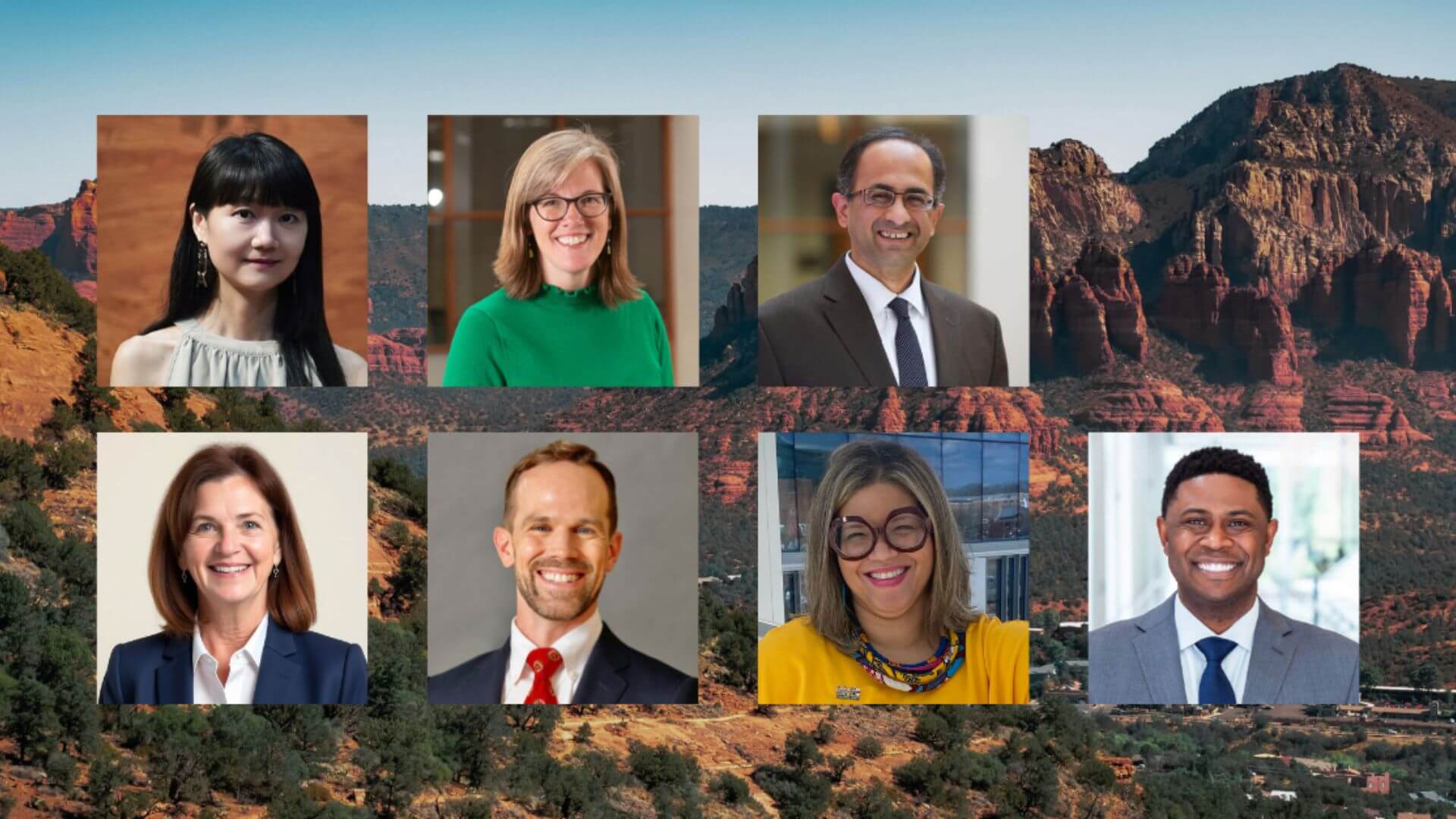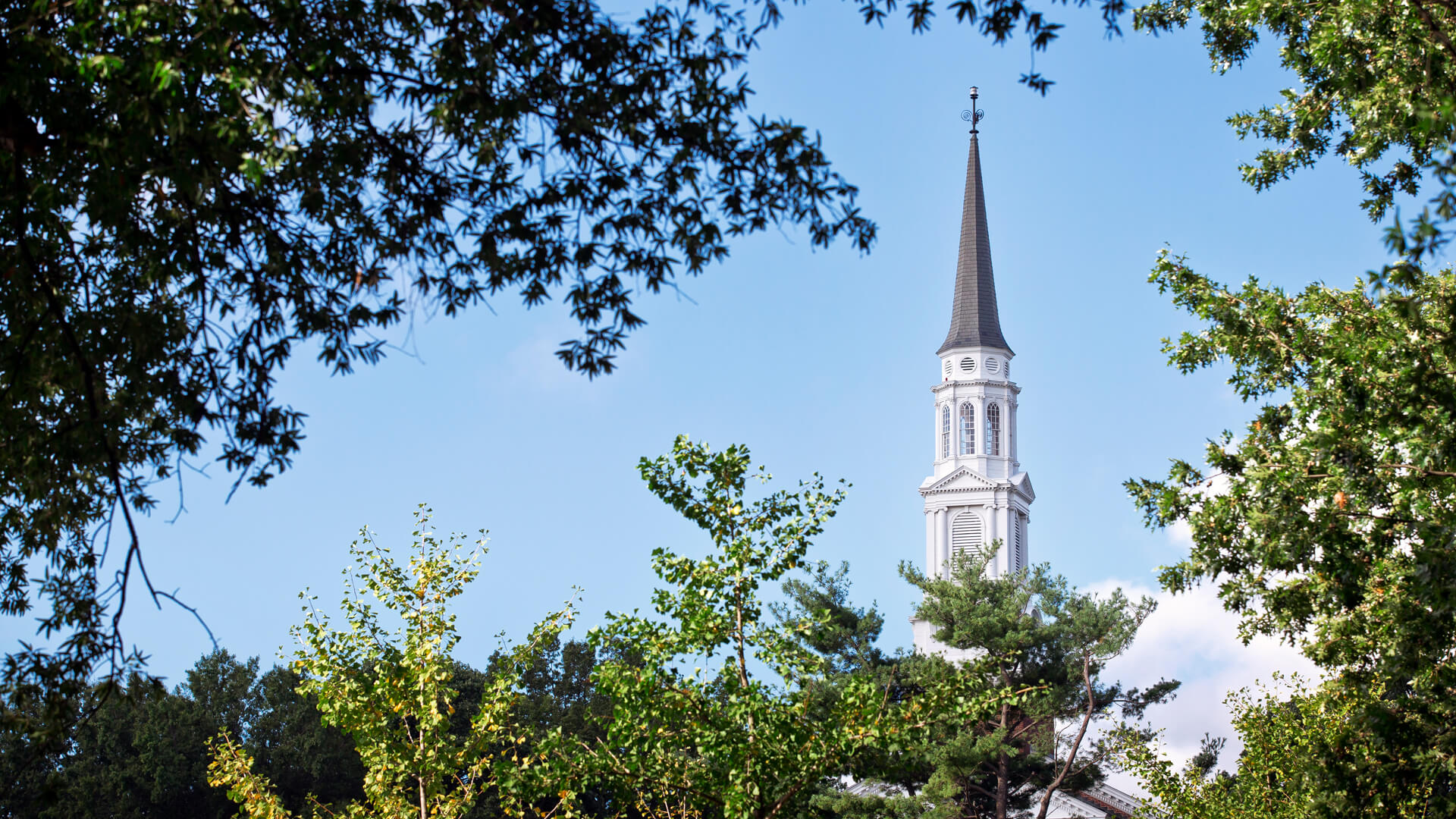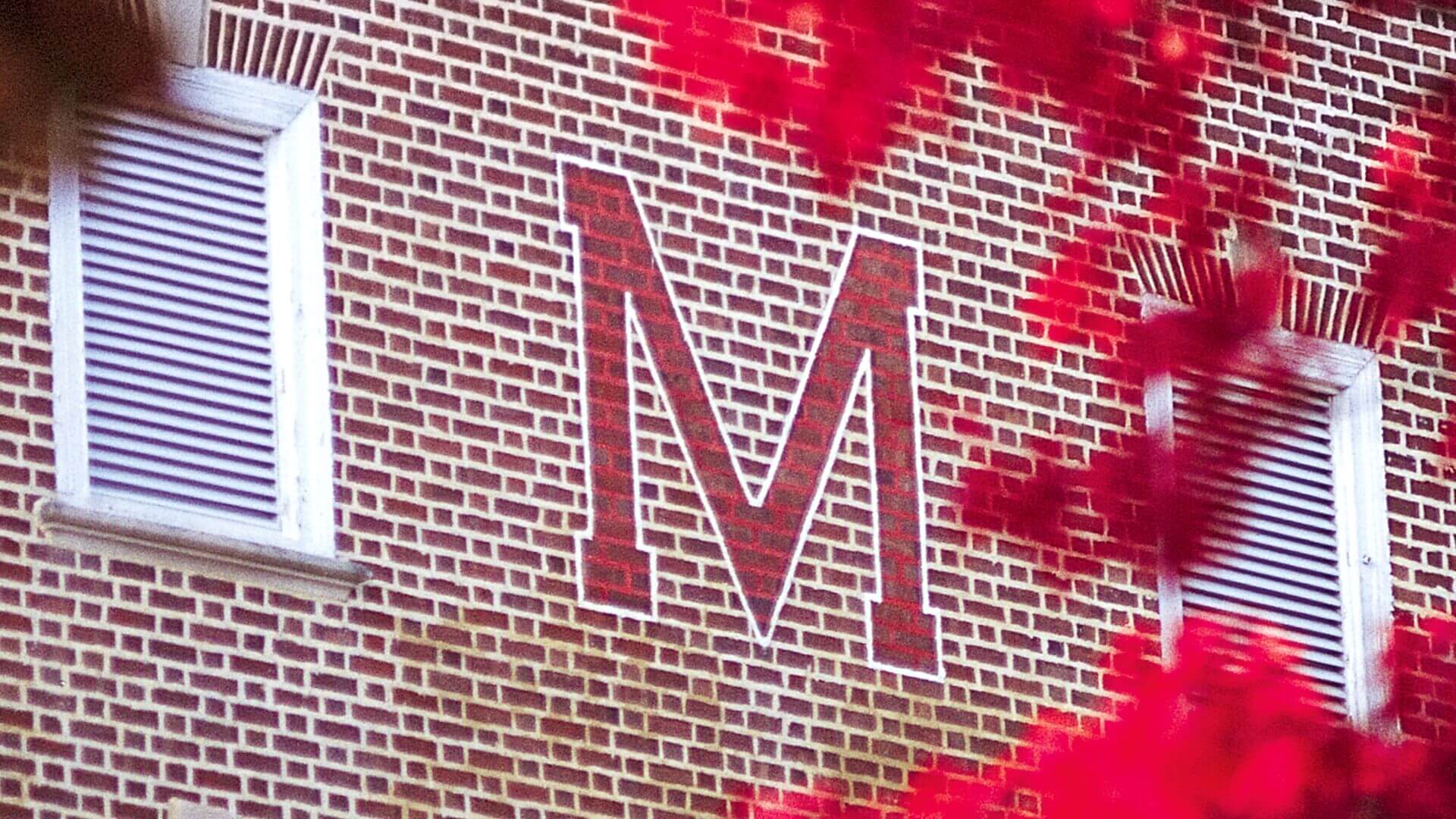
This fall, 22 innovative student teams were awarded Do Good Mini-Grants to support their social impact projects. Almost $10,000 was granted to teams working on projects that address a wide range of issues, from burnout among healthcare workers to financial literacy disparities in low-income communities. This academic year, projects related to COVID-19 and/or racial justice were given special consideration, along with new or emerging teams and community-centered initiatives.
This fall, there is a great mix of teams creating new initiatives to support important issues as well as established groups growing their impact in the communities they are deeply connected with. I am really excited to see how all of this critical work progresses and that Do Good could support such amazing student impactCali Moore Program Coordinator
The Do Good Institute is thrilled to support the growth of these impactful and inventive projects. Read more about the student teams below.
Camp Kesem at University of Maryland
Camp Kesem at University of Maryland is part of a national nonprofit that supports an often overlooked population: children who have been affected by a parent or caregiver’s cancer. UMD’s chapter is one of 115 across the country that creates a free week-long summer camp that empowers children through the hardships of their parent’s diagnosis. Camp Kesem plans to use the grant to provide year-long support that goes beyond summer programming in the form of a spring Friends and Family Day and care packages. ($500)
Degrade·able
Degrade·able is an environmental startup producing biodegradable labware that makes scientific research sustainable. Scientists produce approximately 5.5 million tons of single-use plastic waste every year, most of which is dumped in landfills. Degrade·able reduces the waste generated by scientists by manufacturing cost-effective, biodegradable plastic labware such as pipette tip racks and Petri dishes. Degrade·able will use the grant for research and development of its first minimum viable product, which they will first test in UMD lab courses. ($500)
Mixed Reality for Humanity Project
Mixed Reality for Humanity is an intimate and visually compelling game story where participants can travel through America and understand the language experience of non-English speaking immigrants. By scanning a tablet over 3D printed objects, users are invited into another world. Participants can interact with these objects digitally and physically, revealing a larger story about the importance of language diversity. The project will use this grant to advance the design elements of the program and purchase the technology required for viewers to participate in the experience. ($400)
Empower
Empower is creating a comprehensive guide for survivors of power-based violence in Prince George’s County. Empower’s guides will be centered on a survivor's road to healing, including resources and aid that make the first steps of healing less overwhelming. Finding resources as a survivor of power-based violence can be overwhelming, which is why Empower’s resources will be grassroots-led and vary depending on the user's age, occupation and location. A critical part of healing is for survivors to understand what their options are and to feel empowered to make the best decision for them, which is what Empower aims to do. Empower plans to use the grant to print and distribute booklets. ($200)
Engineering World Health
The Engineering World Health (EWH) Chapter at the University of Maryland seeks to inspire and mobilize the biomedical engineering community to improve the quality and accessibility of healthcare in developing countries. EWH brings together motivated students and provides the opportunity to repair, build and learn about various medical devices. EWH will use its Mini-Grant to purchase medical supplies such as PCR tubes, casts and wheelchairs, which EWH will distribute to those in communities in the U.S. and overseas. ($500)
FinBot
FinBot is an online platform built to address the lack of financial literacy among low-income, Spanish-speaking individuals. Information on financial savings methods, government programs and financial resources will be easily accessible and transparent on FinBot. FinBot’s online platform will feature an artificial intelligence chat bot that connects to users via text, app or website. It will provide instant and personalized responses and point users to additional resources on specifically curated websites and government pages. FinBot plans to use its Mini-Grant to fund costs associated with prototyping, creating and hosting a website and app, and cloud data services. Additionally, funds will be used to promote FinBot as a resource in College Park through community partners. ($400)
Get Ovary It
Get Ovary It is working to bring free menstrual products to the University of Maryland so no student has to choose between going to class and taking care of their body. In order to further efforts both on campus and within the local community, Get Ovary plans to use this Mini-Grant to increase student access to products and increase awareness surrounding sustainable menstrual practices. The funds will also help fund a sustainable menstrual health event on Earth Day to increase awareness around this topic for the student body and introduce menstruators to sustainable products. ($500)
inhale.AI
inhale.AI is a mobile app that will provide accessible troubleshooting and instructions to people using an inhaler. Studies have shown that only 31 percent of individuals who have asthma or COPD use an inhaler correctly. Further, inhaler errors are found to be strongly associated with exacerbated pulmonary issues, furthering the health-economic gap. Individuals who disproportionately fall under this category include folks from Black, Native American and Latinx communities. Studies show that inhaler technique interventions significantly reduced inhaler errors and had very positive effects on disease and patient outcome. Leaders plan to use its Mini-Grant to help fund the creation of inhale.AI. The current market has no application that provides the troubleshooting and active instruction design that inhale.AI provides. ($500)
Merit
The founding of Merit was inspired by the onset of the COVID-19 outbreak. Merit noticed that gyms were not only inaccessible to certain demographics but also high-risk during the pandemic. This, paired with the high costs of home-gym equipment kept community members out of the gym, limiting physical activity. Merit’s mission is to provide a variety of accessible fitness-related resources to communities often underserved in the College Park area. Merit is committed to developing effective, science-based training routines and distributing basic fitness equipment that will inspire individuals of all ages to adopt healthy lifestyles. Merit plans to use its grant to provide funding that will be used to create care packages of basic fitness equipment such as jump ropes and resistance bands that will be distributed to underserved members of the Prince George’s County community. ($400)
Multiracial Biracial Student Association
The Multiracial Biracial Student Association provides a space for mixed folks and students of color or anyone interested in exploring what it means to be biracial or multiracial. The organization will use its grant to fund events and meetings and help the Multiracial Biracial Student Association achieve visibility and bond with more students across campus. They plan to heavily market their organization, develop bigger and richer events, and generally help the campus take those steps forward to create more equitable and enjoyable spaces for mixed folks and students of color. ($250)
North Star Creations
North Star Creations aims to address the gaps in childhood emotional intelligence building. Their goal is to develop products that could combat the mental health crisis happening in the United States by creating products and toys that foster an inclusive environment for young children. By using books, dolls, puzzles, posters, and flashcards, North Star Creations ensures that kids can develop skills and grow their emotional intelligence to be ready for school. North Star Creations will use its Mini-Grant to bolster website design and marketing efforts in order to acquire donations. ($500)
Peer to Peer
Peer to Peer is a student organization at the University of Maryland that partners with the International Rescue Committee (IRC) to provide after school programming for refugee youth in the Prince George's County area four to five times per week. Peer to Peer’s grant will go toward funding Prince George’s County approved background checks and transportation to Parkdale High School and William Wirt Middle School for tutors. ($500)
Preventing Sexual Assault
Preventing Sexual Assault is the only student organization on campus dedicated solely to protecting and uplifting survivors as well as acting as the voice for students in all matters related to Title IX and power based violence. The organization plans to use its Mini-Grant to fund its two main events of the fall semester: Slut Walk and Real Talk. The goal of Slut Walk is to show survivors they are seen and illustrate to UMD’s administration that students are paying attention. Real Talk is an event held at Cornerstone Grill and Loft that facilitates an open, safe, and casual conversation surrounding sexual assault. ($500)
Public Health Beyond Borders, Inc.
Public Health Beyond Borders (PHBB) is an organization with a mission to reduce health disparities across the world in partner communities while providing students with leadership skills and global awareness through a sustainable model of cross-cultural learning. While PHBB is well-established as a student club at UMD, they are just starting out as an official nonprofit organization. PHBB will use its Mini-Grant to secure the few remaining pieces of their nonprofit formation, such as a trademark and communication platforms. ($350)
Salvadoran Literature Committee
The D.C. metropolitan area is home to the largest population of Salvadorans in the country. The Salvadoran Literature Committee seeks to educate the UMD campus community about the Salvadoran voices and stories that exist right here in Maryland. In addition, the committee teaches members about Salvadoran culture and history. This Mini-Grant will go toward accessing a wide variety of Salvadoran poetry, short stories and novels, as well as funding experiences such as field trips. ($250)
Scholars in Action
Scholars in Action (SIA) aims to forge connections across the 12 College Park Scholars programs through avenues of community service. Previously, the 12 programs existed in isolation. Through SIA, students across programs can meet and build lasting connections. By participating in SIA-sponsored community service events, students bring the knowledge they gain in the classroom to tangible experiences in the real world, furthering the impact of their education. Scholars in Action plan to use its grant to purchase promotional items and to implement service events this year. ($250)
TeleShadowing
TeleShadowing is a free clinical shadowing program open to all pre-health students from undergraduate, post-baccalaureate and high school levels. As clinical shadowing opportunities have become limited due to the ongoing pandemic, TeleShadowing aims to extend shadowing opportunities to students across the globe. TeleShadowing experiences are designed to inspire the next generation of future healthcare professionals by providing equal access to educational opportunities, which allows students to advance their career aspirations and achieve their goals so that they can better serve their communities. The organization plans to use its Mini-Grant will to purchase a MailChimp subscription so TeleShadowing can keep in contact with all of their members efficiently. ($500)
The Community Health Awareness Initiative (CHAI) at College Park
CHAI advocates, educates and provides genetic screening and genetic testing awareness events on UMD’s campus. The organization will use its grant to pay speakers for educational events and increase screening availability on campus. These tests can offer crucial insights into a person’s health and diagnose genetic diseases early. As genetic testing is important but costly, this grant will make more tests available sparking a smarter, safer and more educated future generation. ($500)
Vintage Voices at UMD
Vintage Voices at UMD aims to improve the mental health and quality of life for elderly people living in long-term care facilities. Vintage Voices hopes to promote social connection in long-term care facilities during COVID-19, as the pandemic has disproportionately taken a toll on residents due to the enforcement of strict social distancing protocols. Writing letters to individuals in nursing homes or signing up for an intergenerational pen pal program can be a powerful way to connect and improve mood. Vintage Voices will purchase more card-making supplies and coordinate the pen pal programs with activities directors at local long-term care facilities with their grant. ($500)
Vitalize
Vitalize is a wellness app tailored to addressing burnout in clinicians, which has been especially critical during COVID-19. Due to the busy nature of the healthcare setting, clinician-targeted interventions for wellness must be brief, effective, and low-cost. By seamlessly integrating hospital-focused, evidence-based mindfulness and resilience modules into the busy schedules of clinicians, Vitalize aims to help clinicians develop the skills and beliefs needed to combat burnout. Currently, Vitalize is testing their product with healthcare workers through a public beta and pilot and actively networking with hospitals for larger-scale pilot sites in early 2022. This Mini-Grant will fund a trip to a national clinician well-being conference where Vitalize will set up an exhibit. ($500)
Yogi Terps
Yogi Terps is a student-run organization at UMD focused on creating awareness of the benefits of yoga and meditation among college students and the campus community. They offer free yoga classes and mediations that tackle issues of anxiety, depression and other college stressors to better the lives of all UMD students. The organization will use its Mini-Grant to cover yoga instructor fees so Yogi Terps can host professional practices to best serve their members and the UMD community. ($500)
YSocialWork, Inc.
YSocialWork, Inc. is a nonprofit organization that was established to support and advance youth and young adults in rewarding careers in social work. Last year, YSocialWork, Inc. successfully developed, implemented and evaluated a COVID-19 friendly after school program teaching social work values and practices to high school students in Prince George's County. Now that schools are back in session, YSocialWork, Inc. is expanding its in-person programming and plans to use its grant to support this new pilot structure. ($500)



